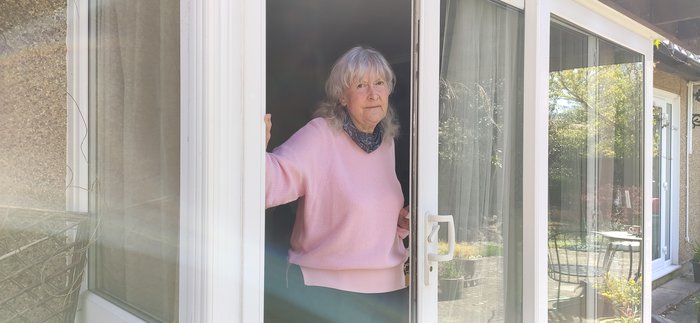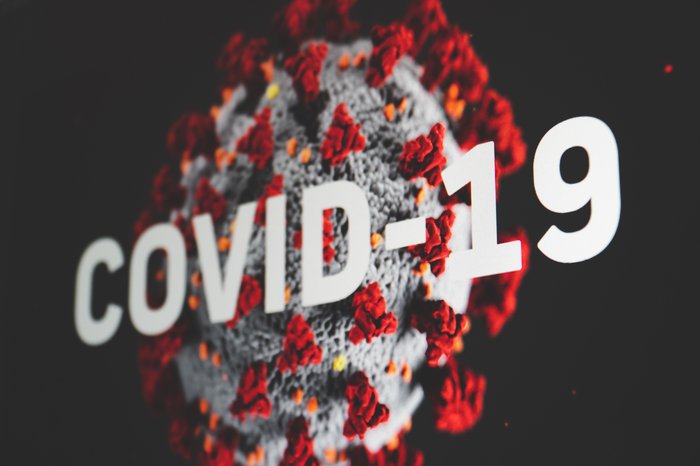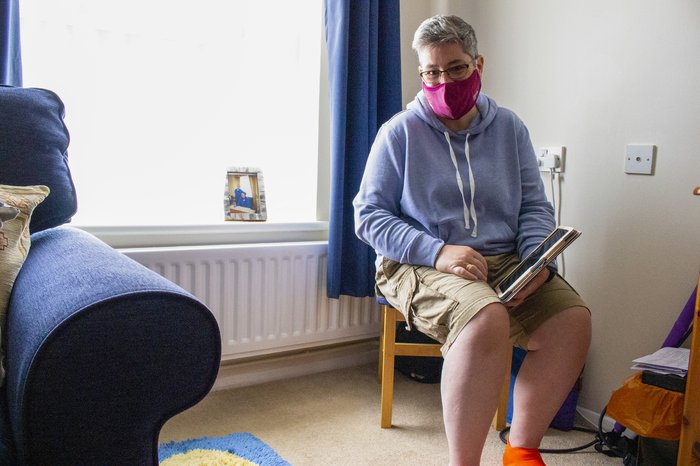Is it time for people with blood cancer to stop shielding from Covid?
Three years on from the start of the Covid pandemic, we look at what information there is for people with blood cancer to decide how to balance risk from the virus with wanting to get on with living their lives as normally as possible.

When the Covid pandemic started in 2020, the Government advice for people with blood cancer was so simple that it could be summed up in three words: stay at home.
This advice was difficult to follow and had a significant impact on people’s mental health. But it was, at least, relatively easy to understand, and it meant everyone with blood cancer was in the same boat.
But as restrictions relaxed and vaccines and treatments became available, people with blood cancer responded in different ways. Some remained as cautious as ever; some quickly got back to their normal lives; and some – probably most – were somewhere in the middle of these.
How do people with blood cancer feel now?
We know from a survey we conducted that by the middle of 2022 most people with blood cancer in the UK were still feeling anxious about Covid, and about a quarter of them were still only leaving their homes for essential things. We don’t have data on how things have changed since then, but our sense is that the number who are still effectively shielding has reduced significantly. But we know from our support line that a number of people are still shielding strictly.
We at Blood Cancer UK have been discussing how we are communicating about this. We’ve asked ourselves if the way we’ve shared information on Covid has got the balance right between giving people important information to help keep them safe, without talking about Covid so much that it still looms larger in people’s minds than perhaps it should. And we’ve challenged ourselves on whether we should give a clearer view on what we think is a sensible approach for people with blood cancer to manage risk from the virus in 2023.
In the end, we decided that giving a one-size-fits-all view isn’t possible. Firstly, risk from Covid will vary from person to person depending on their type of blood cancer, their treatment, their age and general health, and whether they have other health conditions as well as blood cancer. And secondly, attitude to risk will vary from person to person.
Ultimately, it’s down to each person with blood cancer to make their own decision about how to live their lives. But what we can do is set out the position as clearly as possible, so people are best equipped to make their decision.

The situation, as we see it, is this...
People with blood cancer have weaker immune systems than the rest of the population, and so have always been at greater risk of becoming seriously ill from infections. That’s why even before 2020, people with blood cancer would often try to avoid being around people with coughs and colds.
But during 2020 and early 2021, Covid meant that being around other people was suddenly much more dangerous. We didn’t know how likely someone with blood cancer was to die of Covid if they caught it, because we never had reliable data on how many of them had it at any particular time. But we do know that in the year between April 2020 and March 2021, 2,699 people with blood cancer in England and Wales died of Covid. That’s over one in 100 people with blood cancer.
Since then, thanks to vaccines, new treatments, and people getting some immunity from previous infections, we’re now seeing a much lower number of people with blood cancer dying of Covid. The latest data shows that 169 people with blood cancer in England and Wales died of Covid between October and December last year. If rates remained at this level, that would mean that, very roughly, 600 – 700 people out of the ~250,000* living with blood cancer in England and Wales might die of Covid over the next year. That would be a quarter of what we saw in the first year of the pandemic.
While the proportion of people with blood cancer dying from Covid has significantly reduced, there are of course still people with blood cancer who do die from Covid, and each one of these is a tragedy. So it’s not as simple as saying that these much lower numbers mean people should get back to normal.
The fact is that if you have blood cancer, the level of risk that comes from being out and about is much lower than it was in 2020 and 2021, but it is still higher than it was before Covid came along.
On top of this, there is also the need to balance the risk from Covid with the fact that living in an isolated way can also bring risks – in terms of its impact on mental health and, if it means you get less regular exercise, your physical health too.

This is the clearest explanation we can give of what the situation looks like right now. It’s for each person with blood cancer to consider how to use this information, and the information from their treatment team about their individual level of risk, to make up their own mind.
It’s also really important that the fear of coming into contact with Covid isn’t leading people with blood cancer to miss medical appointments that can’t be conducted over phone or video call.
Weighing all of this up isn’t easy, but you don’t have to work it out on your own. Your doctor can give you personalised information about your own level of risk. Family and friends might also be able to help you think about what you really want. And you can always talk to us about it.
Whatever you decide, there are two things that everyone with blood cancer should do to try to reduce their risk from Covid:
- Make sure you’re up-to-date with your vaccines – they are really important in helping keep people with blood cancer safe, and the Spring 2023 booster programme has now started.
- Know how you can access treatments if you do get Covid – these treatments have saved the lives of lots of people with blood cancer, and it’s important to know how to get them as quickly as possible after you test positive.
We know that making decisions around managing risk can be difficult. Many people have working or caring responsibilities that mean their choices are limited. And we know that some people with blood cancer feel under pressure from family or friends to get back to normal. If you’d like to talk this through with someone, give our free support line a call on 0808 2080 888.
It can also help to hear how other people with blood cancer are thinking about risk and making decisions about their daily lives. In another blog, six people with blood cancer explain how they’ve made their decisions.
*There are now approximately 280,000 people living with blood cancer in the UK (figure accurate as of February 2025).
